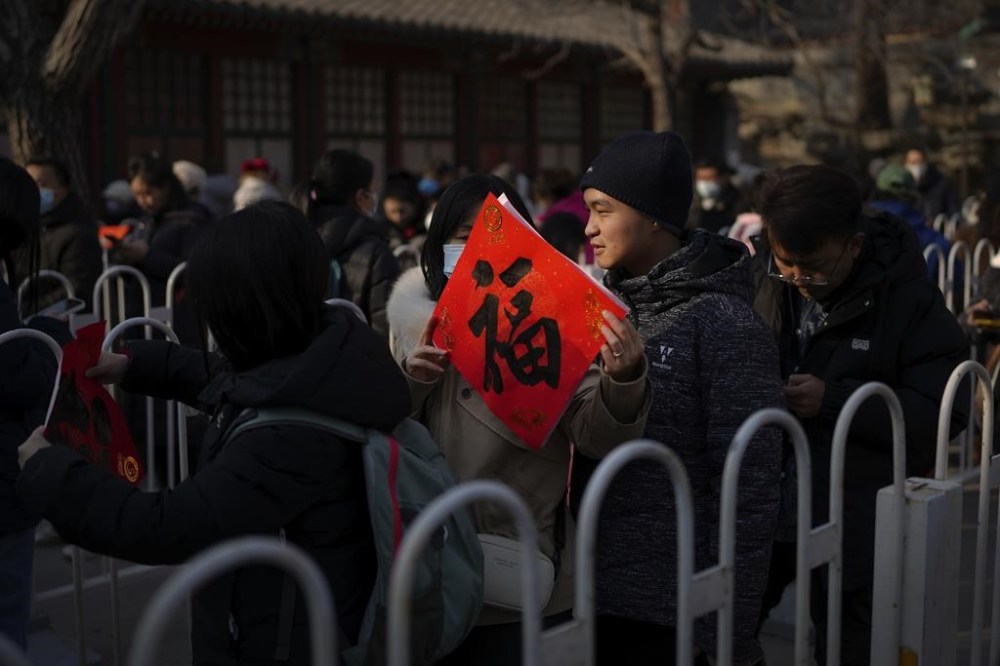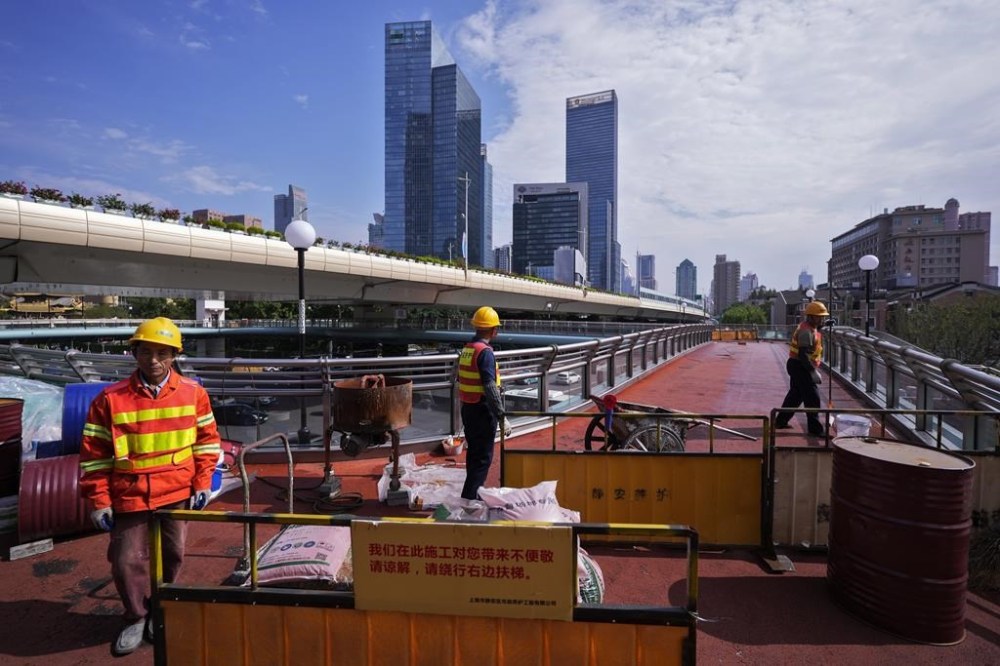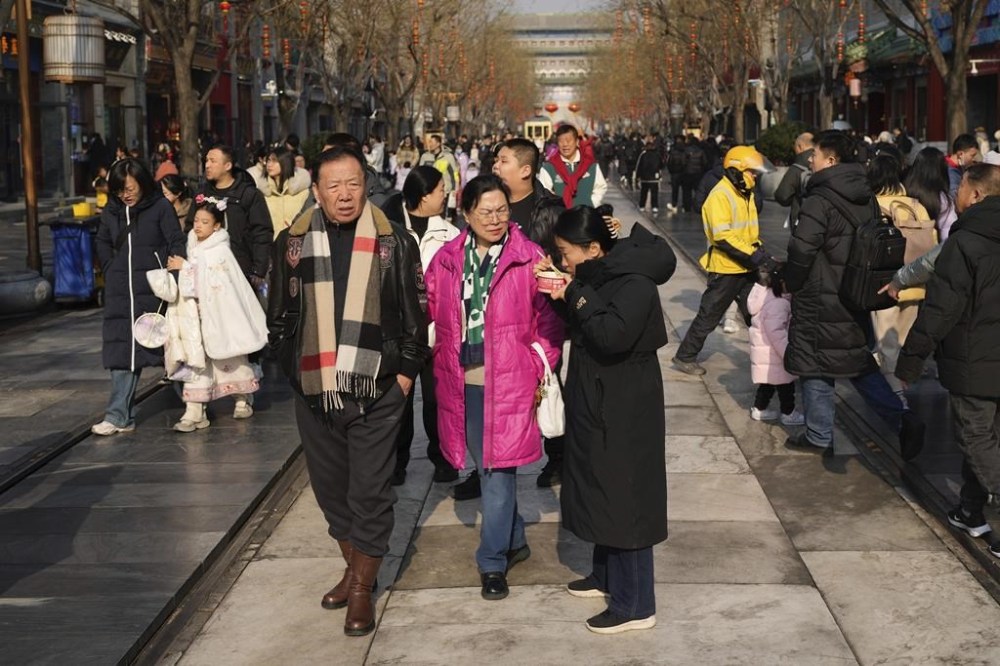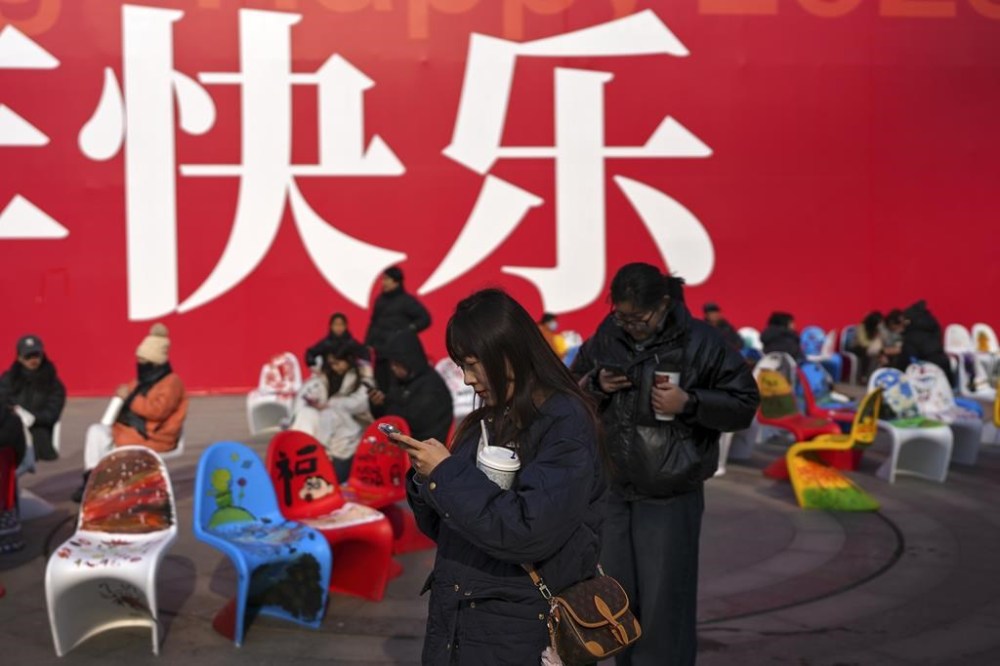China moves to boost languishing markets by ordering funds to invest more in shares
Advertisement
Read this article for free:
or
Already have an account? Log in here »
To continue reading, please subscribe:
Monthly Digital Subscription
$0 for the first 4 weeks*
- Enjoy unlimited reading on winnipegfreepress.com
- Read the E-Edition, our digital replica newspaper
- Access News Break, our award-winning app
- Play interactive puzzles
*No charge for 4 weeks then price increases to the regular rate of $19.95 plus GST every four weeks. Offer available to new and qualified returning subscribers only. Cancel any time.
Monthly Digital Subscription
$4.99/week*
- Enjoy unlimited reading on winnipegfreepress.com
- Read the E-Edition, our digital replica newspaper
- Access News Break, our award-winning app
- Play interactive puzzles
*Billed as $19.95 plus GST every four weeks. Cancel any time.
To continue reading, please subscribe:
Add Free Press access to your Brandon Sun subscription for only an additional
$1 for the first 4 weeks*
*Your next subscription payment will increase by $1.00 and you will be charged $16.99 plus GST for four weeks. After four weeks, your payment will increase to $23.99 plus GST every four weeks.
Read unlimited articles for free today:
or
Already have an account? Log in here »
Hey there, time traveller!
This article was published 22/01/2025 (351 days ago), so information in it may no longer be current.
BANGKOK (AP) — The Chinese government is trying to encourage people to spend more by ensuring that share prices will rise, ordering pensions and mutual funds to invest more in domestic stocks to help jolt its languid markets out of the doldrums.
Officials told reporters in Beijing on Thursday that beginning this year mutual funds should increase holdings of onshore stocks, called A-shares, by at least 10% a year over the next three years.
Commercial insurance funds will have to put 30% of their annual new premium revenue into share markets beginning this year, they said.

“This means that at least several hundred billion yuan of long-term funds will be added to A-shares every year,” said Wu Qing, chairman of the China Securities Regulatory Commission.
The announcement followed a meeting of top financial officials including ministries in charge of pensions and the central bank.
“Implementing the plan’s various measures will further enhance the equity allocation capacity of medium- and long-term funds, steadily expand the scale of investment, improve the supply and structure of funds in the capital market, and consolidate good conditions for the capital market’s recovery,” Wu said.
The ruling Communist Party announced this move just ahead of China’s biggest holiday of the year, the Lunar New Year, which begins on Wednesday, Jan. 29. It’s a time when families tend to splash out on food and travel and little red packets of money for children and young adults, a time of wishes for good fortune.
Markets in Hong Kong and Shanghai rose early Thursday after the announcement but then shed those gains. The Shanghai Composite index closed 0.5% higher while Hong Kong’s Hang Seng index fell 0.4%.

China’s share markets are huge but they hit their peak value before the 2008 global financial crisis and have meandered well below that level since. A lack of gains in share prices, along with falling housing prices, has discouraged Chinese families from spending, slowing consumer demand and economic growth.
Less than 5% of household wealth in China is held in equities, compared with nearly 30% of household wealth in the United States. Chinese markets, which were set up in the early 1990s, have tended to serve as fundraising vehicles for state-run companies that have launched massive share offerings but remain under control of the ruling Communist Party.
So far, the government’s efforts to get people to spend more and save less have had mixed success. An initiative to promote purchases of energy efficient vehicles and appliances by paying subsidies to people who turn in their old versions of such items has boosted sales of such products. But share prices had traded stubbornly within a narrow range after a brief-lived rally late last year.
Wu said pension funds will be required to revamp how they assess their performance and companies will be encouraged to conduct more share buybacks and pay higher dividends to give shareholders better returns.
“This is a very important institutional breakthrough for the entry of medium- and long-term funds into the market. It can be said that it has solved a problem that has been unsolved for many years,” he added.

On Wednesday, the government announced 20 measures meant to encourage foreign investment in Chinese markets aimed at facilitating more cross-border investments. Foreign investors account for about 4% of total market value of equities in China, according to the Bank for International Settlements, while such investment accounts for about a fifth of market value in the U.S. and 30% in Japan.
Sell-offs by foreign investors and major shareholders and high market volatility have handicapped the Chinese markets, Lei Meng, a China equity strategist at UBS Securities, said in a commentary Thursday.
So, “the willingness of long-term investors to participate in the stock market has dwindled,” Lei said. “The proposal of market value management reform directly addresses this issue because it is directly related to investors’ sense of gain.”
But such moves have often failed in the past, since they attempt to override prevailing market sentiment by government orders.
“As we’ve seen in the past, such efforts can be likened to attempting to kindle a fire with damp wood — often proving ineffective and short-lived,” Stephen Innes of SPI Asset Management said in a commentary.



